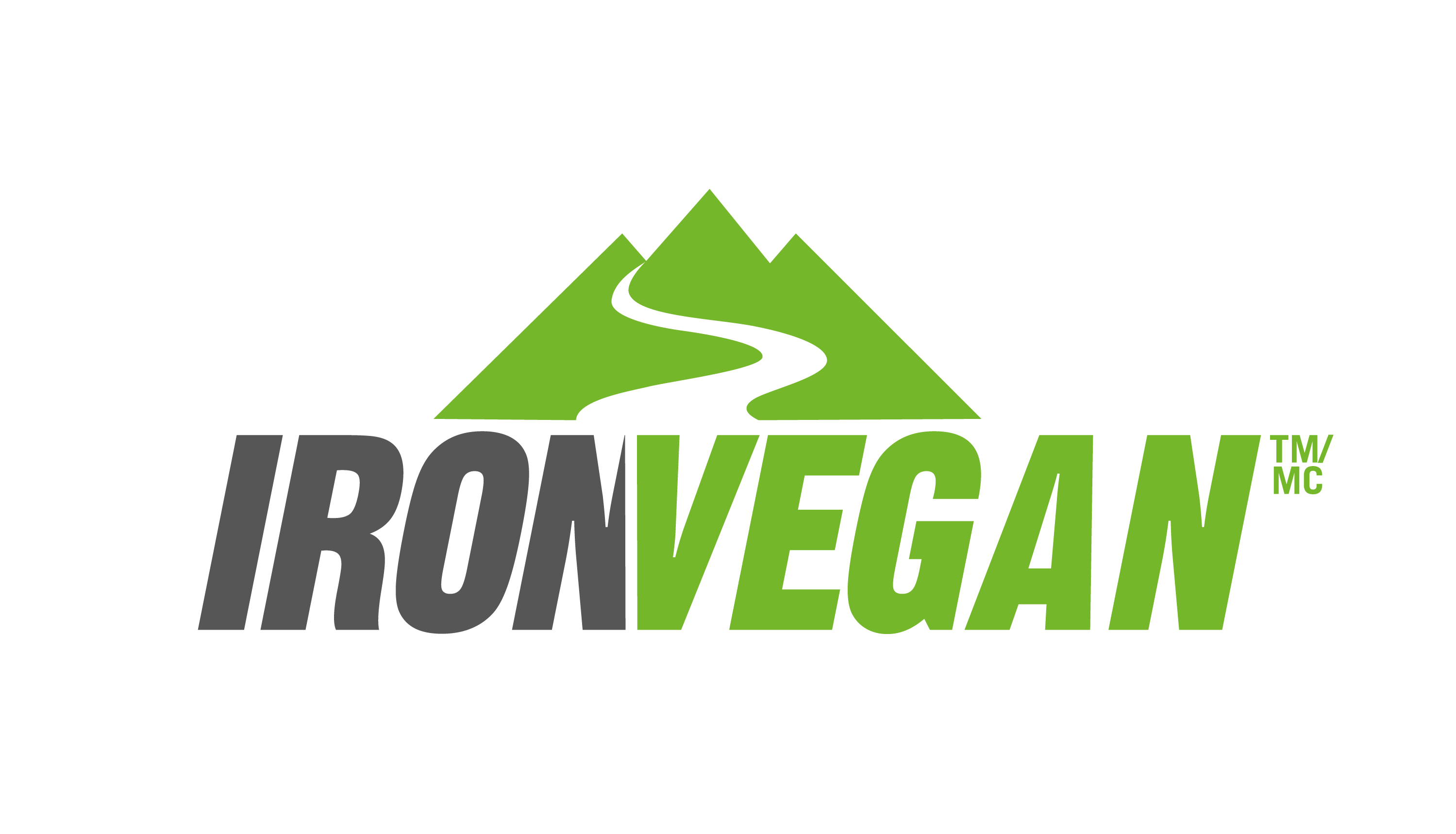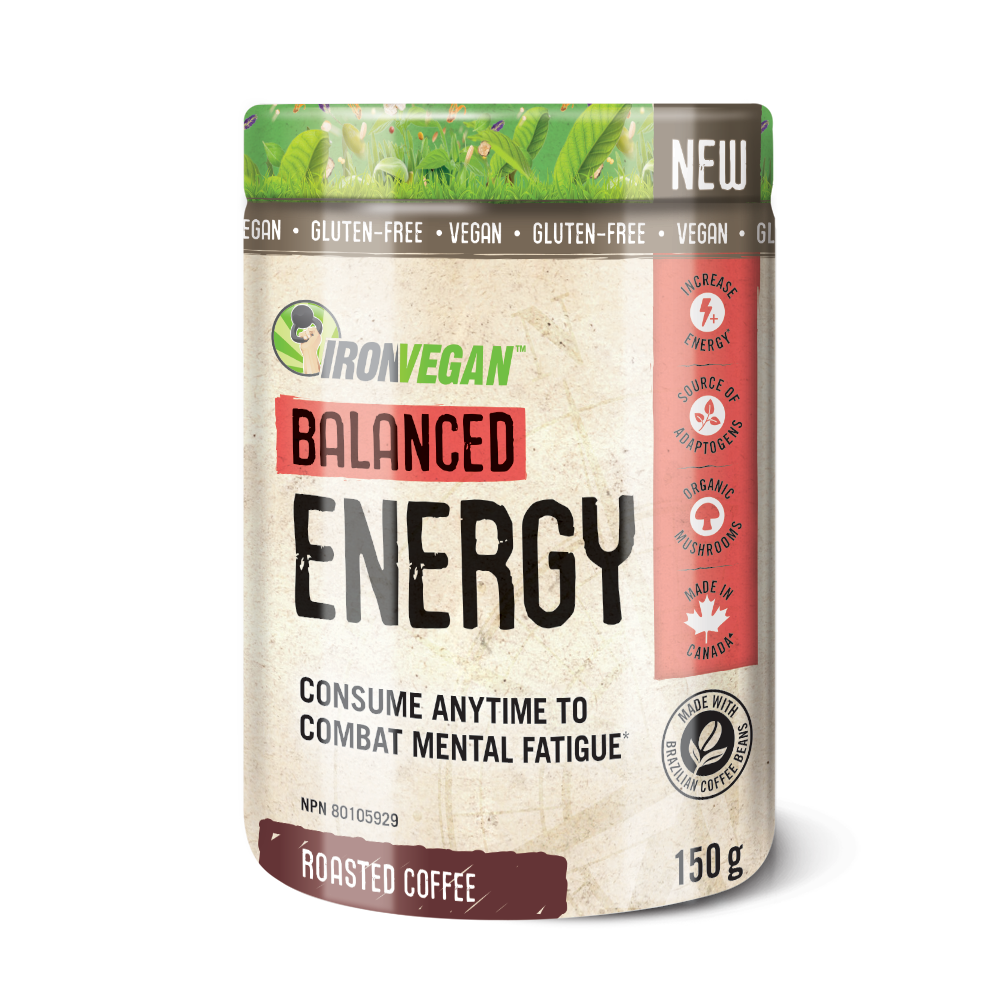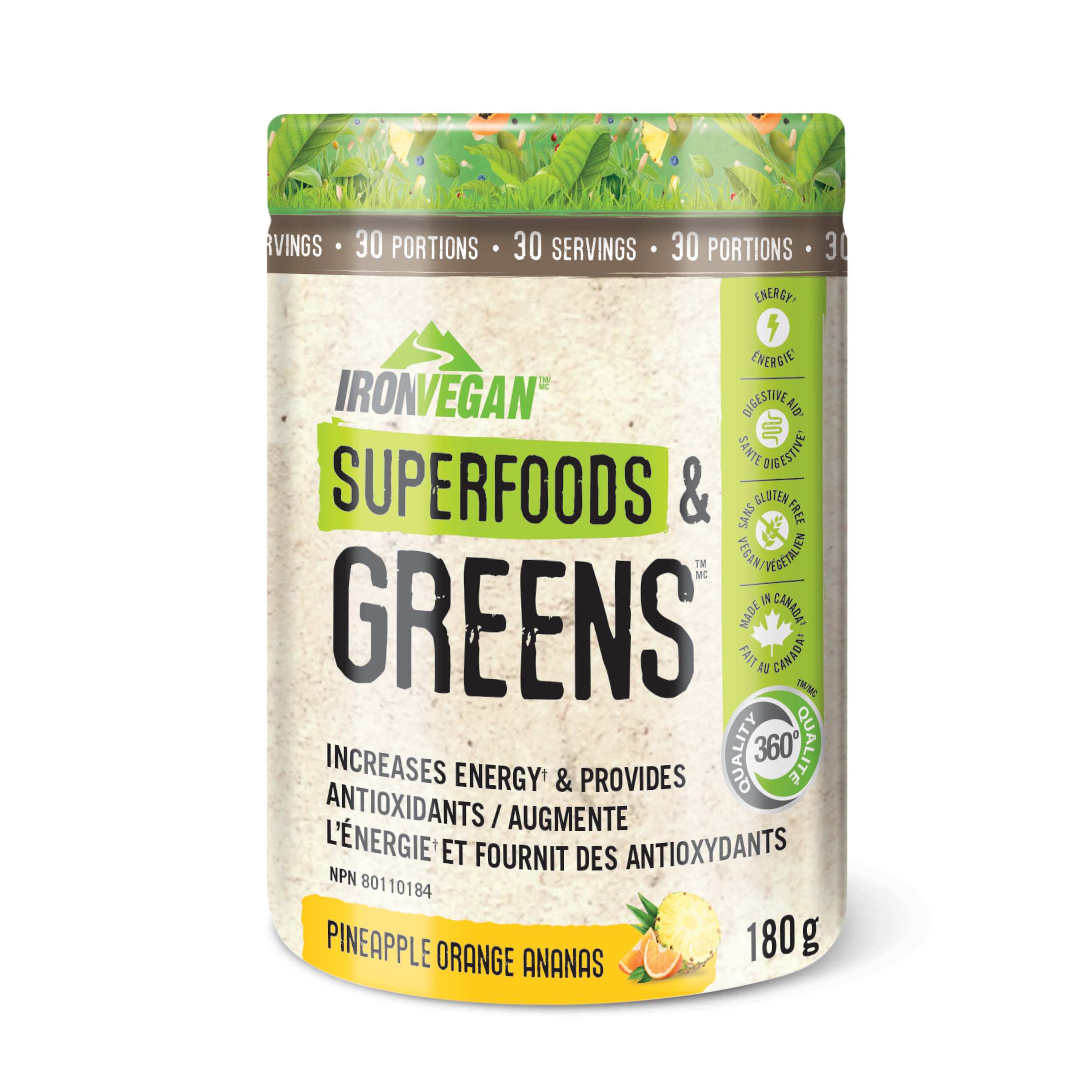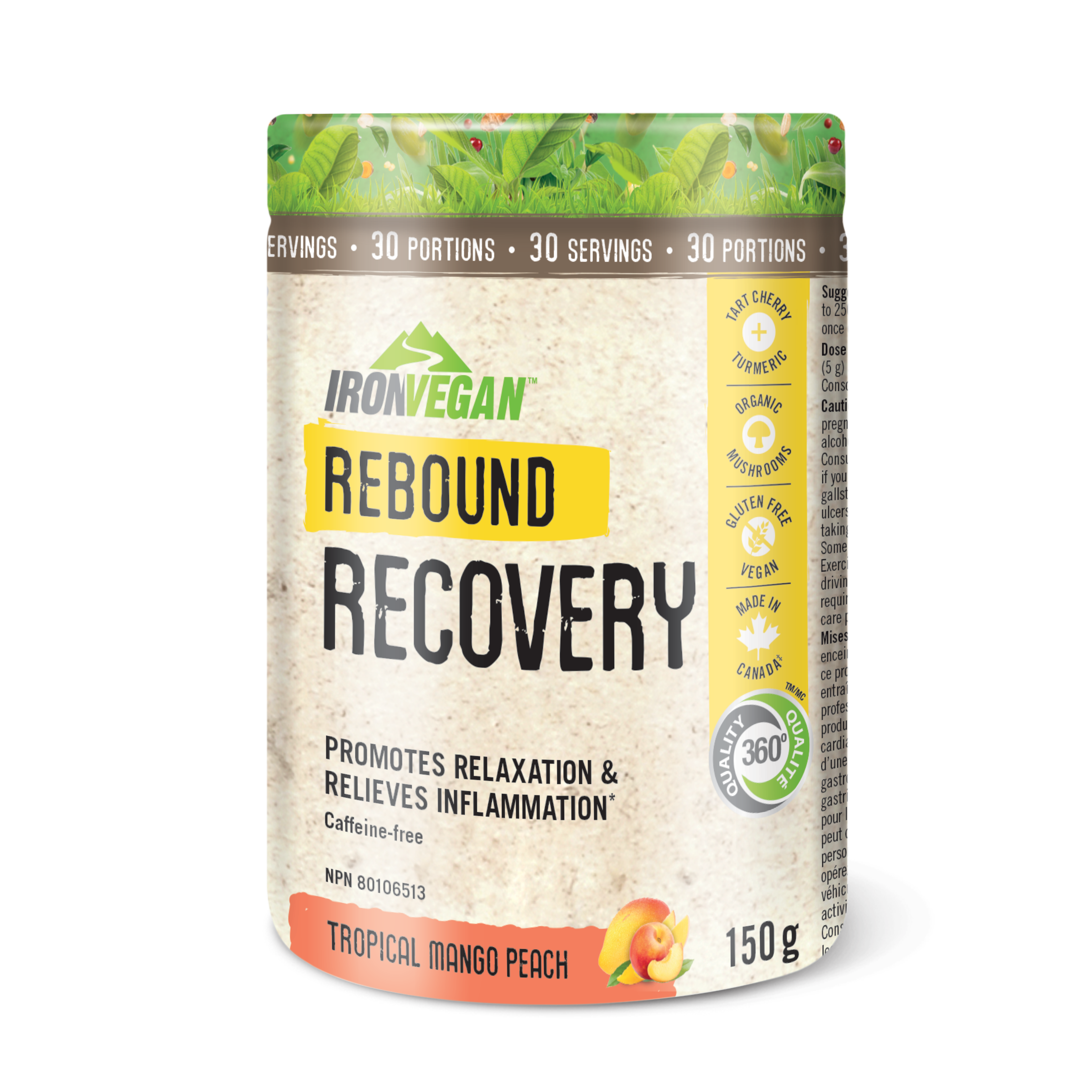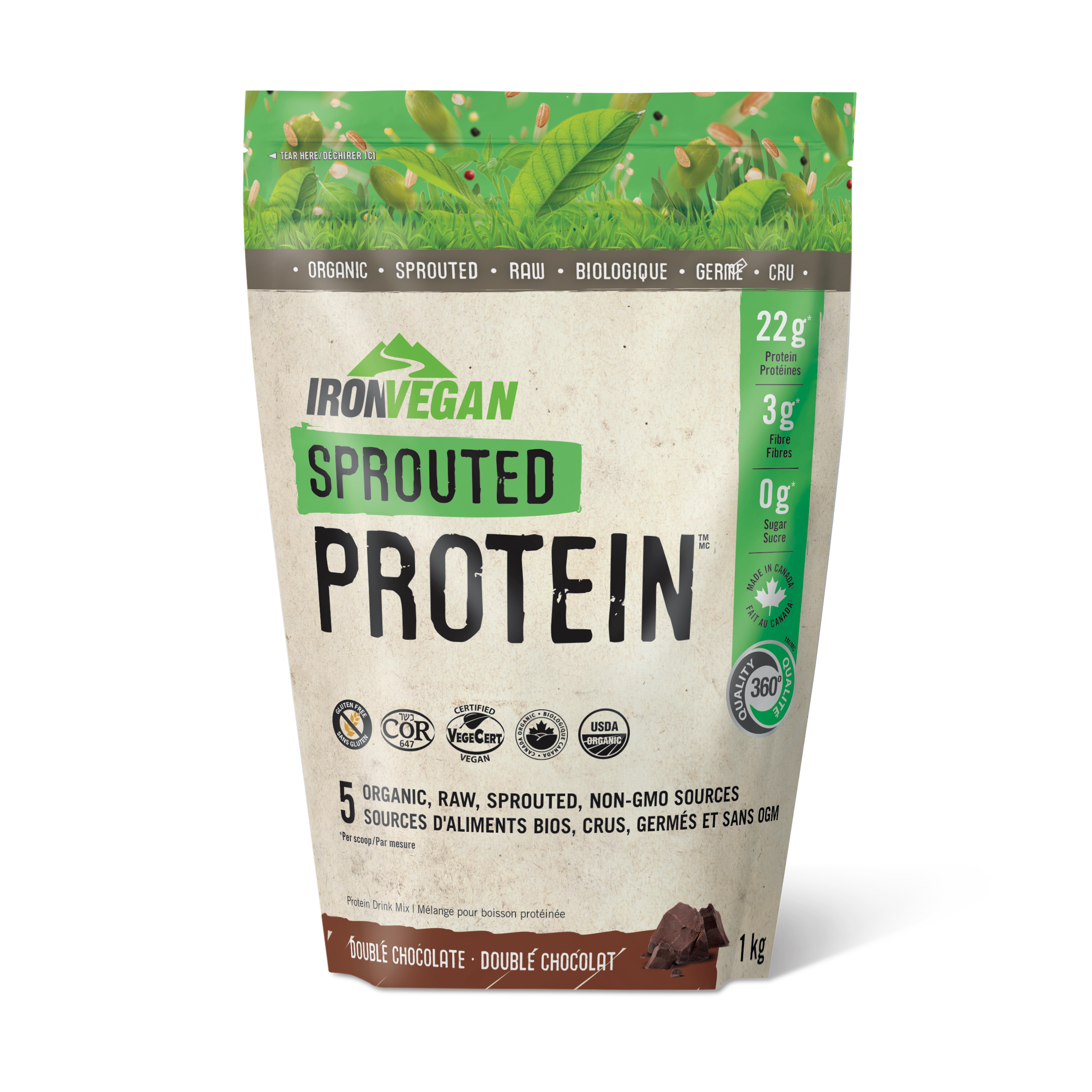Written by Iron Vegan
Protein. You know it’s important – in fact, it’s derived from the Greek word proteios meaning “of first importance”!1 It plays an important role in the growth and repair of tissues including muscle and bone. Here’s a bit more about it, and some of its other benefits!
Protein Defined
It’s the major structural component of all cells in the body1, and it’s one of the three macronutrients (the other two are fats and carbohydrates).1
Amino Acids
Organic compounds that combine to form proteins, amino acids are often referred to as the building blocks of proteins. 1 They play a crucial role to your body and are essential to vital processes like synthesizing hormones. 1 There are 3 categories of amino acids2:
- Essential: we can’t make them on our own and must get them through our diet2: Histidine, Isoleucine*, Leucine*, Lysine, Methionine, Phenylalanine, Threonine, Tryptophan, Valine*
- Non-Essential: our body makes these ones on its own: Alanine, Aspartic acid, Asparagine, Glutamic acid, Serine2
- Conditionally Essential: our bodies can make these, but only under certain conditions (e.g., early life, disease states, intense exercise, stress, etc.)2: Arginine, Cysteine, Glutamine, Glycine, Proline, Tyrosine
Branch-Chain Amino Acids* (BCAA) are the most anabolic (tissue/muscle building) of all the amino acids.2 3 essential amino acids are classified as BCAA: Leucine, Isoleucine, Valine. 2 Leucine plays the biggest role in stimulating the synthesis of muscle.2
Several organs are involved in amino acid metabolism, including:3
-
Intestine: dietary amino acids are absorbed in the small intestine; the intestine prefers glutamine and asparagine for energy3
-
Liver: catabolism (the breakdown of large molecules) of all amino acids except for branch-chain amino acids begins in the liver. The amine group is separated and incorporated into urea. Carbon skeletons are oxidized to Co2 or H20; or used for gluconeogenesis (which is the generation of glucose from certain non-carbohydrate carbon substrates) or ketogenesis (the breakdown of fatty acids and ketogenic amino acids)3
-
Muscle: branch-chain amino acids are degraded primarily in muscle. Over 50% of the amino acids released to the circulation are alanine and glutamine, which act as carriers of amines from other tissues3
-
Kidney: captures glutamine released from muscles. Reactions produce ammonia, which is excreted in urine. This is one of the mechanisms to help maintain the body’s acid-base balance3
What is a Complete vs. Incomplete Protein?
A complete protein contains all 9 of the essential amino acids. Proteins derived from animals (meat, fish, seafood, eggs, dairy) are considered complete proteins.4,5,6
An incomplete protein is a protein that’s missing 1 or more of the essential amino acids or has an inadequate dietary essential amino acid balance.4,5,6While many plant-based proteins are considered incomplete, combining amino acids together in a meal will typically provide all the amino acids the body needs.4,5,6 Provided you eat all of the essential amino acids throughout the day, your body can piece it all together.4,5,6
Benefits of Protein
Muscle
Skeletal muscle mass is in a constant state of turnover, with muscle proteins being synthesized and broken down simultaneously throughout the day. 7 Nutrition plays an important role in daily muscle protein turnover. Specifically, amino acid intake increases muscle protein synthesis rates (and inhibits muscle protein breakdown rates to a lesser extent). 7
Weight Management
Higher protein intake increases thermogenesis and satiety compared to diets of lower protein content. Research also suggests that high protein meals lead to a reduced subsequent energy intake:8
- Protein intake stimulates metabolic hormones that communicate information about energy status to the brain; and involve brain regions that influence reward and motivation9
- Higher-protein diets (1.0-1.5 g/kg body weight) are associated with lower BMI and waist circumference and higher HDL cholesterol compared to protein intakes at RDA levels10
Bone Health
High dietary protein intake may positively impact bone health in several ways, including calcium absorption and enhancing lean body mass.11 It’s an important nutrient for bone health and for the prevention of osteoporosis.12 Protein helps give your bones their strength and flexibility, and is also the big component of muscles.12
Mental Health
Sufficient protein intake is an important part of neurotransmitter production.13 The essential amino acid methionine combines with adenosine triphosphate (ATP) to produce S-adenosylmethionine (SAM), which facilitates the production of neurotransmitters in the brain. 13 The neurotransmitter dopamine is made from the amino acid tyrosine and the neurotransmitter serotonin is made from the tryptophan. 13 If there’s a lack of any of these two amino acids, there will not be enough synthesis of the respective neurotransmitters, which is associated with low mood and aggression.13
Protein intake and in turn the individual amino acids can affect brain function and mental health13.
References:
- Wu, G. (2016). Dietary protein intake and human health. Food Funct., 7, 1251 doi: 10.1039/c5fo01530h
- Britannica Online. Accessed April 10, 2002 https://www.britannica.com/science/amino-acid
- Antonio Blanco, Gustavo Blanco (2017). Role of Various Organs in Amino Acid Metabolism. Medical Biochemistry https://www.sciencedirect.com/topics/biochemistry-genetics-and-molecular-biology/amino-acid-metabolism
- Westerterp-Plantenga, M., Lemmens, S., & Westerterp, K. (2012). Dietary protein – its role in satiety, energetics, weight loss and health. 108(S2), S105–S112. https://doi.org/10.1017/S0007114512002589
- Fürst, P. (2009). Basics in clinical nutrition: Proteins and amino acids. e-SPEN, the European e-Journal of Clinical Nutrition and Metabolism, 4(2), e62–e65. https://doi.org/10.1016/j.eclnm.2008.07.010
- Deutz, N. (2008). Basics in clinical nutrition: Protein and amino acid metabolism. e-SPEN, the European e-Journal of Clinical Nutrition and Metabolism, 3(5), e185–e187. https://doi.org/10.1016/j.eclnm.2008.06.002
- Wall, B.T., Cermak, N.M. & van Loon, L.J.C. Dietary Protein Considerations to Support Active Aging. Sports Med 44, 185–194 (2014). https://doi.org/10.1007/s40279-014-0258-7
- Halton, T. & Frank B. Hu. (2004) The Effects of High Protein Diets on Thermogenesis, Satiety and Weight Loss: A Critical Review, Journal of the American College of Nutrition, 23:5, 373-385, DOI: 10.1080/07315724.2004.10719381
- Cuenca-Sanchez, M., Navas-Carrillo, D., Orenes-Pinero, E. (2015). Controversies Surrounding High-Protein Diet Intake: Satiating Effect and Kidney and Bone Health. Advances inNutrition. May;6(3): 260-266.
- Pasiaskos, SM, Lieberman, HR, Fulgoni, VL. (2015). Higher-protein diets are associated with higher HDL cholesterol and lower BMI and waist circumference in US adults. The Journal of Nutrition. Mar;145(3):605-14.
- Kerstetter, J. E., Kenny, A. M., & Insogna, K. L. (2011). Dietary protein and skeletal health: a review of recent human research. Current opinion in lipidology, 22(1), 16–20. https://doi.org/10.1097/MOL.0b013e3283419441
- (n.d.). Osteoporosis Canada. Retrieved January 25, 2021, from https://osteoporosis.ca/bone-health-osteoporosis/nutrition/protein/
- Rao, T. S., Asha, M. R., Ramesh, B. N., & Rao, K. S. (2008). Understanding nutrition, depression and mental illnesses. Indian journal of psychiatry, 50(2), 77–82. https://doi.org/10.4103/0019-5545.42391
